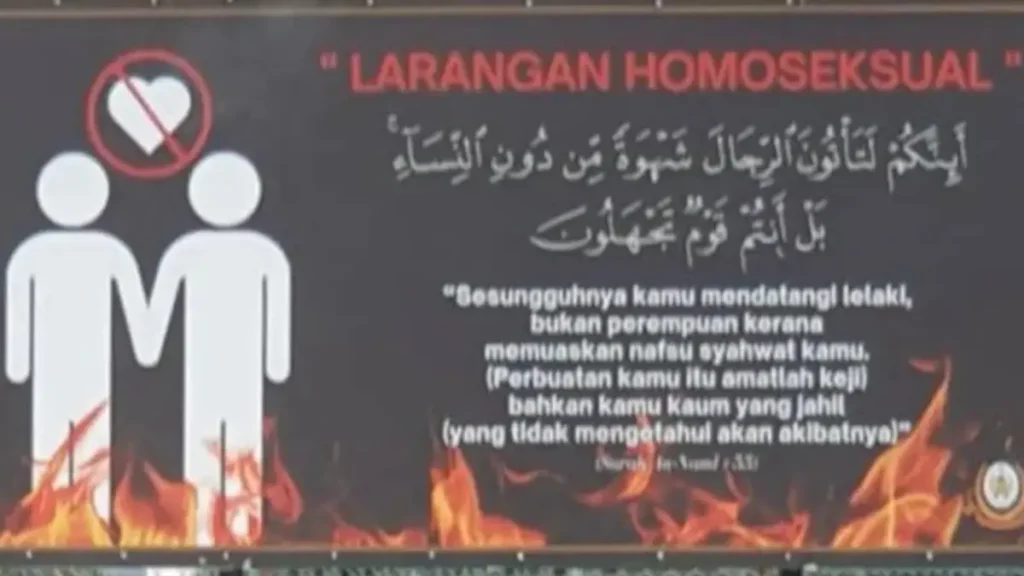In a controversial move, the Malaysian state of Terengganu has introduced stringent new laws that threaten to imprison Muslim men for up to two years if they skip Friday prayers without a valid reason. The rules, enacted under sharia law and announced by the governing Pan-Malaysian Islamic Party (PAS) on Monday, have sparked widespread criticism for their perceived infringement on personal freedoms in a country already navigating a complex balance between religious and civil authority.
A Drastic Increase in Penalties
Under the newly implemented regulations in Terengganu, first-time offenders who miss Friday prayers can face imprisonment of up to two years, a fine of 3,000 ringgit (~US$630), or both. This marks a significant escalation from previous penalties, which capped jail terms at six months and fines at 1,000 ringgit (~US$210) for missing three consecutive prayers. The Terengganu Islamic Affairs Department, in collaboration with public reports and religious patrols, will enforce these rules, with signage at mosques serving as a constant reminder of the obligations and potential consequences.
Muhammad Khalil Abdul Hadi, a member of the Terengganu state legislative assembly, defended the measures in a statement to the local daily Berita Harian, emphasizing their symbolic importance. “This reminder is important because Friday prayers are not only a religious symbol but also an expression of obedience among Muslims” he said on November 4, 2024. He added that punitive actions would be a last resort, suggesting an initial focus on education and reminders rather than immediate punishment.
Criticism and Human Rights Concerns
The new laws have drawn sharp rebuke from human rights advocates who argue that they undermine fundamental freedoms. Phil Robertson, director of Asia Human Rights and Labour Advocates (AHRLA), condemned the measures as a direct violation of personal liberty. “Freedom of religion and belief also means freedom to not believe or participate, so Terengganu authorities are blatantly abusing human rights with this draconian law” he stated on November 5, 2024. Robertson further called on Malaysia’s Prime Minister Anwar Ibrahim to intervene and revoke the penalties, highlighting the broader implications for the country’s reputation on human rights.
Critics also worry about the precedent such laws set for religious enforcement in Malaysia, a nation with a dual-track legal system where Islam is the official religion but operates alongside civil law. Sharia courts hold jurisdiction over personal and family matters for Muslims, who constitute roughly two-thirds of Malaysia’s 34 million population. However, the expansion of sharia penalties into public behavior, as seen in Terengganu, raises questions about the erosion of secular protections and individual choice.
Terengganu’s History of Religious Enforcement
This is not the first time Terengganu has tightened religious regulations. The state, governed by PAS—a party that controls all 32 seats in the local legislative assembly—has a history of implementing strict sharia-based laws. The current legislation, originally enacted in 2001, was amended in 2016 to impose heavier penalties for various offenses, including failing to observe Ramadan and harassing women in public. The latest update represents a continuation of PAS’s agenda to strengthen religious observance through legal mechanisms across the four Malaysian states it governs.
The absence of opposition in Terengganu’s assembly means there is little internal resistance to such policies. This political dominance allows PAS to push forward with measures that align with its conservative Islamic vision, often at odds with Malaysia’s federal framework, which prioritizes a balance between religious and civil governance. The Terengganu state government did not respond to requests for comment on the new laws, leaving unanswered questions about their implementation and scope.
In November 2024, 42 year old Mohd Affendi Awang, was sentenced to six strokes with a rattan cane and fined RM4,000 (~US$900) after pleading guilty to being in a private residence in Kemaman, with a member of the opposite sex (khalwat), who is not an immediate family member. Mohd Affendi, a widower with five children, is a Malay Muslim was the first male offender to be caned in Terengganu public for committing khalwat for a third time. According to local laws, Khalwat is an offence under Section 31(a) of the Terengganu Syariah Criminal Offences Enactment Amendment 2022. In handing down the sentence, Judge Kamalruazmi Ismailessere of the Terengganu Syariah (Sharia) High Court, ordered that the punishment be carried out at the modern Al-Muktafi Billah Shah Mosque in Kampung Ladang, Kuala Terengganu, after Friday prayers. In his ruling, Judge Kamalruazmi Ismailessere said that, according to Sharia law, the imposition of any punishment must serve as a lesson, education, and prevention, so that the same crime is not repeated, and can serve as a reminder to the community “You have been whipped and jailed, yet still do it again. The first-time punishment should have given you a reason to repent”.
In May 2025, Kuala Terengganu city council errected an anti-LGBTQ billboard, which soon after attracted opposition from human rights organizations. The billboard included an illustration of two men holding hands below a heart in a circle with a red line through it, indicating that romantic encounters between men was strongly discouraged. The headline “Larangan Homoseksual,” which translates from Malay into English reads “Homosexual Ban” and included a lengthy quote from the Quran “Indeed, you come to men, not women, to satisfy your lustful desires. (Your actions are an abomination) rather, you are ignorant people (who do not know the consequences).”

A National Debate on Sharia and Civil Rights
The developments in Terengganu reflect a broader struggle within Malaysia over the role of sharia law in public life. In 2021, the neighboring state of Kelantan, also under PAS control, attempted to expand sharia criminal law to cover offenses such as sodomy, incest, gambling, sexual harassment, and desecration of places of worship. However, Malaysia’s federal court struck down these laws in 2024, deeming them unconstitutional. The ruling triggered mass protests by PAS supporters, who demanded greater protection for sharia laws, underscoring the deep divisions between religious conservatives and advocates for secular governance.
The federal court’s decision in Kelantan offers a potential legal pathway to challenge Terengganu’s new penalties, though any such action would likely face significant political and social pushback. Prime Minister Anwar Ibrahim, who leads a coalition government with diverse ideological factions, has yet to publicly address the Terengganu laws. His administration must navigate the delicate balance between respecting state autonomy on religious matters and upholding national human rights standards—a task made more complex by PAS’s growing influence in several states.
Enforcement Mechanisms and Public Response
Enforcement of the new rules in Terengganu will rely heavily on community involvement and religious patrols, raising concerns about potential overreach and abuse. Reports from the public are expected to play a key role, alongside joint operations with the Terengganu Islamic Affairs Department. While Muhammad Khalil Abdul Hadi’s assurance that punishment will be a last resort offers some reassurance, the lack of clear guidelines on what constitutes a “valid reason” for missing prayers leaves room for subjective interpretation by authorities.
Public reaction within Terengganu remains mixed, with limited verifiable accounts available at this stage. The presence of mosque signage as a reminder of the laws suggests an intent to normalize compliance through visibility, though it is unclear how this will impact attendance or community dynamics. For many Muslims in Malaysia, Friday prayers are a deeply ingrained cultural and spiritual practice, but mandating participation under threat of imprisonment shifts the act from one of personal devotion to state-enforced obligation.
Regional and International Implications
Terengganu’s move comes at a time when Malaysia is under scrutiny for its handling of religious freedoms. Internationally, the country has often positioned itself as a moderate Muslim-majority nation, balancing Islamic values with democratic principles. However, policies like those in Terengganu risk tarnishing this image, particularly as human rights organizations amplify calls for reform. The potential for such laws to alienate non-Muslim minorities and moderate Muslims alike could further complicate Malaysia’s social fabric, which already grapples with ethnic and religious tensions.
Within Southeast Asia, Malaysia’s approach to religious enforcement contrasts with neighboring countries like Indonesia, where sharia law applies only in specific regions like Aceh and is not uniformly enforced at the national level. Thailand, with its significant Muslim minority in the southern provinces, also avoids such punitive measures, focusing instead on cultural integration and dialogue. Terengganu’s policies may therefore position Malaysia as an outlier in the region, potentially drawing criticism from ASEAN partners who prioritize social cohesion over strict religious mandates.
The Path Forward
As Terengganu begins to implement its new laws, the broader impact on Malaysia’s legal and social landscape remains uncertain. Will these penalties withstand federal scrutiny, or will they face a similar fate to Kelantan’s unconstitutional laws? The answer hinges on the willingness of national leaders to confront PAS’s agenda and the resilience of Malaysia’s dual legal system in protecting individual rights. For now, the state’s Muslim men face a stark choice between compliance and the risk of severe punishment, a dilemma that encapsulates the ongoing tension between faith and freedom in one of Southeast Asia’s most diverse nations.















